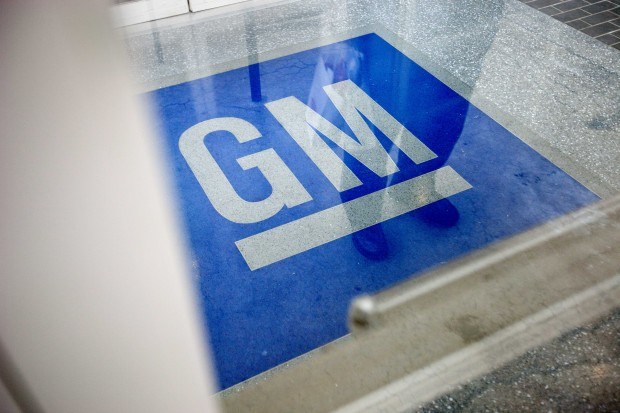General Motors Co agreed to settle a lawsuit filed by a motorcyclist involved in a minor crash with one of its self-driving cars in San Francisco late last year, the U.S. automaker said on Friday.
Oscar Nilsson sued GM in U.S. District Court in January for negligence over a December 2017 crash in which he was injured.
The settlement, reported earlier by car-focused website Jalopnik, was filed on Wednesday. Lawyers said in the joint court filing they plan to finalize details by the end of June.
Nilsson’s suit claimed the self-driving GM Cruise “suddenly veered back” into Nilsson’s lane, striking him and knocking him to the ground.
GM’s report on the crash to California regulators said the car was operating in heavy traffic, when it saw a space between two vehicles in the left lane and began to merge. At the same time, a vehicle decelerated and the self-driving car stopped making the lane change and returned to the center lane.
As the Cruise was re-centering itself, the motorcyclist that had just lane-split between two vehicles in the center and right lanes moved into the center lane, glanced the side of the Cruise, wobbled, and fell over, the report said. GM said a police report found Nilsson at fault for attempting to overtake and pass the Cruise, but Nilsson’s lawyer said he was not issued a citation in the incident.
Nilsson’s suit said he “suffered injuries to his neck and shoulder and will require lengthy treatment” and was required to take disability leave.
GM spokeswoman Jordana Strosberg confirmed in an email on Friday that both sides “mutually agreed to resolve” the lawsuit.
Sergei Lemberg, a lawyer for Nilsson, declined to disclose any details “except to confirm that the case has resolved to my client’s satisfaction.”
On Thursday, Japan’s SoftBank Group Corp said it would invest $2.25 billion in GM’s autonomous vehicle unit Cruise, a deal that sent GM shares up nearly 13 percent.
The move is one of the highest profile, largest investments to date in self-driving technology, an industry that could revolutionize transportation but faces engineering, safety and regulatory challenges.
Of roughly 40 crashes involving self-driving vehicles reported to California regulators since January 2017, 33 involved GM Cruise vehicles, but none have been declared to be the fault of GM Cruise, California records show.
GM vehicles in urban areas face more complex driving tasks than in suburbs.
“While it seems crazy to test in an absurdly complex place like San Francisco, it’s absolutely necessary,” Cruise CEO Kyle Vogt wrote in an October blog post. “We believe it’s the fastest way to achieve the level of performance and reliability needed to deploy self-driving cars at scale in a sustainable way.”





















 The Future of HR Is AI
The Future of HR Is AI  State Farm Inked $1.5B Underwriting Profit for 2025; HO Loss Persists
State Farm Inked $1.5B Underwriting Profit for 2025; HO Loss Persists  New Texas Law Requires Insurers Provide Reason for Declining or Canceling Policies
New Texas Law Requires Insurers Provide Reason for Declining or Canceling Policies  Teens’ First Year on the Road Most Deadly
Teens’ First Year on the Road Most Deadly 







